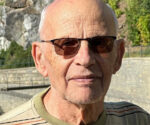South Korea: From Prosecutor To President To Pariah
Last month, amid a series of mounting economic and political crises, South Korean President Yoon Suk Yeol issued a martial law decree—the first in more than 40 years. Yoon claimed that it was necessary to “eradicate anti-state forces” and “protect constitutional order.”
Meeting overnight in an emergency session, the National Assembly voted unanimously to revoke the measure, but on December 4, just hours after the emergency order was declared, tens of thousands of Koreans gathered outside Parliament, demanding Yoon’s removal. Ten days later, Yoon was impeached.
“Yoon faced widespread criticism for mishandling economic challenges, including inflation and unemployment. Accusations of nepotism and scandals involving First Lady Kim Keon-hee, such as allegations of accepting luxury gifts, further eroded public trust. His foreign policy too, particularly towards Japan, was domestically met with outrage,” says Hannes Mosler, professor at the Institute of Political Science (IfP) and the Institute of East Asian Studies (In-East) at the University of Duisburg-Essen.
Before he became president in 2022, Mosler points out that Yoon was a prosecutor.
“This perhaps explains his tendency to engage in binary thinking, fundamental mistrust and confrontational behavior; he also had no experience with democratic negotiation and decision-making processes, and no established networks in politics and society that could provide him with guidance,” Mosler notes.
Much damage has been done. Prime Minister Han Duck-soo, who assumed the role of acting president since Yoon’s impeachment, rushed to reassure domestic and international stakeholders about the stability of the country’s governance. Yet, given South Korea’s fraught history with martial law and military crackdowns on pro-democracy movements, Yoon’s disastrous miscalculation will not be easily forgotten or forgiven. Unless another coup follows, Mosler observes, he will be removed from office by the Constitutional Court in the spring: “He will also be prosecuted for his offense of high treason, which will result in a long prison sentence if he is not sentenced to death.”
The post South Korea: From Prosecutor To President To Pariah appeared first on Global Finance Magazine.









